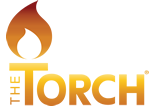Recently I was giving my friend a demo of TheTorch.com and I asked her if all of her beneficiaries on her accounts were up-to-date. She said “yes,” but I could hear a slight hesitation in her voice.
A few days later she called me saying, “I can’t believe it, my ex-husband’s name was on my teacher’s pension, I totally forgot to change it. Thank you so much for making me think to check. I would be rolling over in my grave if he had that money!”
I figured my friend was not alone, so I asked Stephanie Daniel, an estate attorney at Kirk Palmer & Thigpen, what would happen if she hadn’t caught this. Stephanie said, “This mistake happens more often than you might think and an attorney generally has no power to fix the problem. After you die, the insurance company or the company administering the funds will automatically distribute the money to the individual named on the most recent beneficiary form, regardless of your desires, your circumstances prior to death or even what you wrote in your will.”
Naming beneficiaries on your assets seems simple enough, right?
Well, as you read from my friend’s experience above, most people don’t give it much thought. I hope these three tips will help you avoid some of the common pitfalls.
1. Don’t name someone you no longer have a relationship with
It sounds obvious, but unless you check the paperwork on all your financial assets after a divorce, a separation, or a falling out, your money is at risk. When was the last time you checked your beneficiary designations on your life insurance, retirement accounts and pension(s)? If you are like most people, it’s been years, maybe decades.
2. Don’t name minors
Minors cannot inherit assets; the courts will have to decide the best course of action. Speak to an estate planning professional about how to set up a trust until the minor comes of age.
3. Don’t name someone with special needs
Even a modest inheritance can prevent special needs dependents or heirs from getting any government aid. Find out more information at A Special Needs Plan and find a financial planner who specializes in special needs families.
It takes just 15 minutes to fill out the Torch checklist in your personal notebook. It includes all of the accounts, policies and documents that may or may not have the correct beneficiary assigned. Once you fill it out, anything you need to check will be on your Bright Ideas list.
It’s important to also remember that leaving your forms blank, naming spouses, and naming trusts can be problematic if not done properly. Find an estate planning professional to help you make the right decisions for your unique situation.


